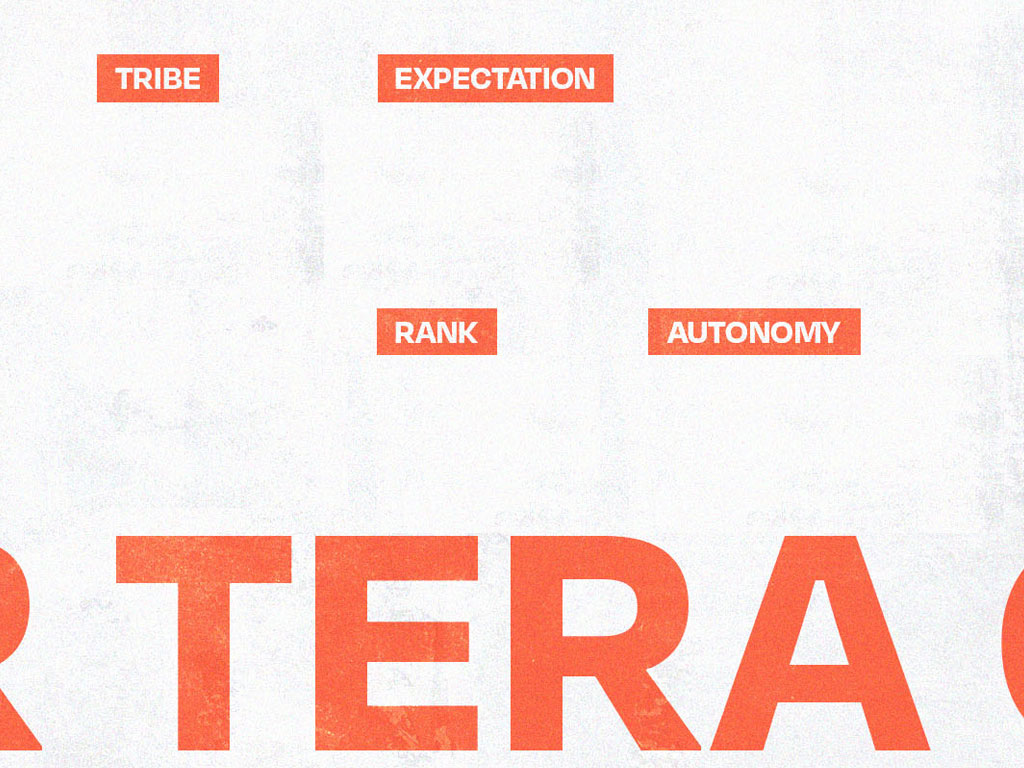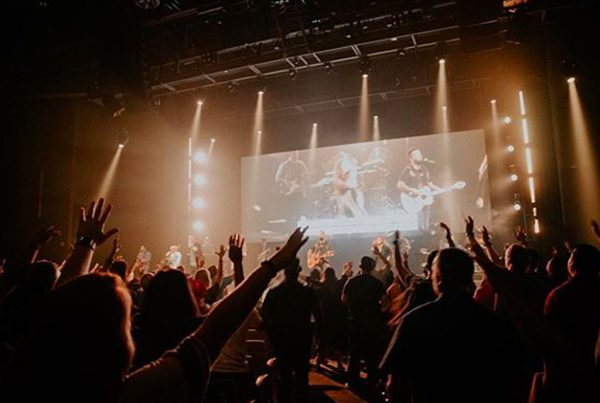
It’s easy to forget the concerns people have when walking into a new environment. A common problem is our assumption that guests automatically trust us when they visit our church. The truth is they’re internally answering questions we didn’t know they were asking. The questions they’re asking are assessing risk and safety to figure out if they can trust the organization. If they feel safe and trust the organization, they’ll let their guard down, experiencing what you want them to experience.
The trust factor in any organization can be broken down by what is called the TERA quotient. The higher the TERA quotient, the greater the security and trust in the organization. (Side note: you want people to trust what you’re doing.) If they trust you, they’ll trust the message you’re about to deliver.
Our job is to increase the TERA quotient whenever we can. Here are the four parts of the TERA quotient:
T is for “tribe.”
Your visitor is immediately asking themselves, “Are these people with me, or are they against me? Do they look like me, dress like me, and even think like me?” We can answer these questions by ensuring our demographics and attire look and feel like the community we’re aiming to reach.
E is for “expectation.”
The brain is trying to figure out, “Do I know the future or don’t I?” Variety might be the spice of life, but it’s not the entrée. People prefer predictability because it builds safety. New attendees need to know what’s going to happen next. We conquer this part of the TERA quotient by dropping in hints throughout the experience of what is coming next. During worship, we may say, “We’re going to sing one more song,” and when we transition, “We’re about to hear a message from God’s word.” A big one is the duration of time—“The service lasts for 70 minutes.” If they know what to expect, they’ll feel safe. If they feel safe, they’ll get more out of what you have to offer.
R is for “rank.”
This one is huge and something I’ve had to evaluate in my church. They’re asking the question, “Are you more important or less important than I am?” People want to know they’re valued. The most important person in the room shouldn’t be the preacher. It should be the visitor. When they have the higher “rank,” they feel safe and know that people are making decisions with them in mind. We address “rank” by not making ourselves seem unapproachable or the hero of every story.
A is for “autonomy.”
The question the visitor is asking is, “Do I have a say in what happens?” Another way of defining this in the church world is by asking this question, “Do I have a way of giving honest feedback?” People will “buy into” an organization when they are able to “weigh in” on what’s happening. Higher levels of autonomy help drive engagement in the interaction and ownership of the organization. We achieve this by giving people the opportunity to provide immediate feedback on the service they attended.
We should evaluate the TERA quotient often. People are more skeptical than ever of church and church leaders. We need to go above and beyond with providing a place of security so that they can truly belong before they believe.

Aaron Burke is the Lead Pastor of Radiant Church in Tampa, Florida. Aaron and his wife Katie planted Radiant Church in 2013 with a dream of impacting the Tampa Bay area for the kingdom of God. Since the launch, Radiant Church has seen incredible growth and expansion. Aaron has a heart for multiplication and plans to continue to open locations throughout Tampa Bay. Aaron graduated from Southeastern University in 2005, received his Masters in Business Administration in 2010 and completed his Doctorate in Ministry in 2020. Aaron and Katie have been married since 2010 and now have 5 beautiful children: Lily (2012), Annabelle (2014), Kai (2016), Elise (2018), and Adeline (2020). With his spare time, Aaron loves traveling, spending time with his family, and CrossFit.





